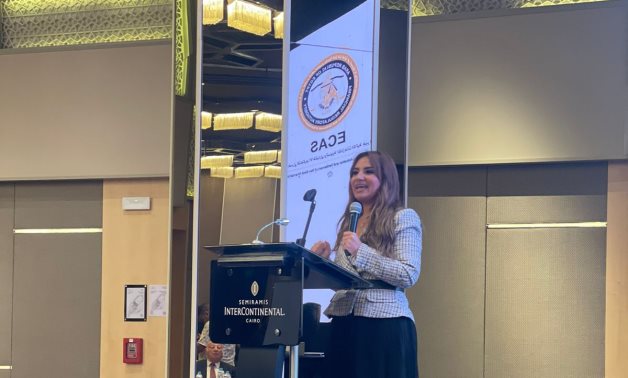
Executive Director of the Egyptian Center for Arbitration and Settlement of Non-Banking Financial Disputes (ECAS), Marian Kaldas/ Egypt Today
CAIRO - 1 November 2023: Family businesses represent nearly 80 percent of Egypt’s national income, and contribute to approximately 75 percent of the private sector's activity in the country, according to the executive director of the Egyptian Center for Arbitration and Settlement of Non-Banking Financial Disputes (ECAS), Marian Kaldas.
Kaldas highlighted during the ECAS's inaugural conference on family businesses that these entities employ nearly 70 percent of the workforce in Egypt.
The conference, titled "Family Businesses: Expansion and Continuity Opportunities," aimed to explore growth and sustainability prospects for family businesses. It encompassed three main themes: expansion opportunities, continuity prospects, and an assessment of the effectiveness of current legislation in supporting family businesses in Egypt.
Kaldas pointed out that approximately 30 percent of family businesses continue operations after the first generation, and only 3 percent persist beyond the second and third generations."
She also announced that Egypt will participate in the Dubai Arbitration Week for the first time this year in a session scheduled for November 15.
The ECAS executive director revealed that the center is preparing for a forum that will bring together family business companies from across the Middle East.
For his part, Chairman of the Financial Regulatory Authority (FRA), Mohamed Farid, said that family companies will benefit from a number of tax concessions when registering on the stock exchange, especially with regard to dividend distributions and mergers and acquisitions plans, which will enhance the companies’ capabilities to develop their business, expand, and move forward to increase their production capacity and achieve better financial indicators.
Furthermore, Chairman of the Egyptian Exchange (EGX) Ahmed ElSheikh stressed the importance of listing on the stock exchange for family businesses, as it provides them with many advantages, including “the ability to access the sources of financing necessary for expansion, liquidity represented by the ease of buying and selling securities, and creating market value for companies based on pricing their shares according to supply and demand mechanisms.”
ElSheikh pointed out the importance of adhering to the principles of governance for family companies, as this contributes to their growth and continuity in the long term, praising the effective role of the ECAS in resolving disputes between family companies, as this provides a quick, effective and permanent solution.
“Disclosure and governance controls help with fair pricing and obtaining financing” ElSheikh elaborated, noting that governance is to ensure the continuity of companies.
Vice President of EGX Heba ElSerafi highlighted that EGX was among the first to adopt and create a specific index for family businesses and SMEs. ElSerafi noted that family businesses require funding to grow and expand, and only 7 percent of them are able to secure bank loans.
ElSerafi emphasized that being listed on EGX not only provides funding but also ensures fair pricing and free marketing opportunities for these businesses.
Amira El Saeed, IFC ESG Projects Manager, stated that globally, only 23 percent of family businesses successfully transition from the first to the second generation. Furthermore, 11 percent of family businesses make it from the second to the third generation, and a mere 3 percent continue beyond the third generation.
The conference concluded by recommending the provision of facilities that facilitate the expansion of these types of companies, strengthening direct and indirect investment opportunities for them, and the necessity of issuing legislation to regulate them.
The Egyptian Center for Voluntary Arbitration and Non-Banking Financial Dispute Settlement, represented by Marian Kaldas, announced the launch of the first specialized training course in the governance of family businesses and the resolution of private disputes.

Comments
Leave a Comment